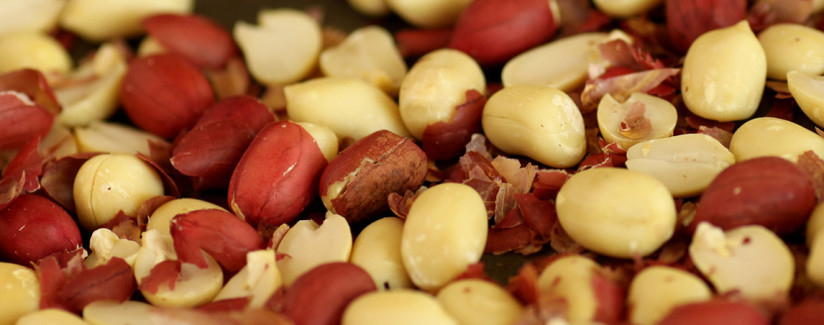
Why Has There Been an Increase in Food Allergies?
Originally posted 12/15/2011
According to Dr. Stephen Taylor, no one knows the exact answer to why the prevalence of food allergies is increasing. He doubts any experts would hypothesize that chemicals used in food production play a role in the prevalence of food allergies. He explains other theories that seem much more plausible, but have not been proven, like cleanliness, c-section births and avoidance of specific foods.
Best Food Facts received a reader question asking, “Why is there such an increase in food-related allergies, such as peanut, eggs, and gluten? Could it be the chemicals that are used in the production?” We reached out to Dr. Stephen Taylor, Professor and Co-Director of the University of Nebraska Food Allergy Research & Resource Program, for his expert insight.
Is there an increase in the prevalence of food allergies? Or does it just seem that way?
Dr. Taylor:
“Most experts do believe that there’s a genuine increase in food allergies. Certainly, diagnoses have improved over the last 25 years, so some of the increase may just be attributable to better diagnoses. Even so, there’s been a genuine increase in doctor-diagnosed food allergies as well. Self-diagnosed food allergies are not very reliable.”
Can you explain the difference between food allergy and food intolerance?
Dr. Taylor:
“My definition is that allergies are abnormal responses of the human immune system to naturally-occurring proteins in foods. More than one kind of immune mechanism can be involved. Peanut allergy, for example, has a different immune mechanism than gluten sensitivity. There are also intolerances due to foods that do not involve abnormal responses of the immune system and for the most part, those illnesses have milder symptoms. For example, lactose intolerance leads some people to restrict their dairy product intake, but they don’t have to avoid it nearly as carefully as someone with a true milk allergy.”
Why is there such an increase in food-related allergies, such as peanut, eggs, and gluten?
Dr. Taylor:
“Well, experts really don’t know for sure why there is an increase in food-related allergies, but there are several theories.
- The one that’s gotten the most publicity is called the hygiene hypothesis. It hypothesizes that we’re too clean and, therefore, our immune system doesn’t have very much to be concerned about. Instead, it becomes mischievous and gives us allergies. It’s been very well noted that consumers in societies where hygiene is not that high seem to have lower prevalence of food allergies.
- Another theory that has been pretty clearly demonstrated is the increase in prevalence of birth by caesarean section because a baby born by caesarean does not acquire his mother’s gastrointestinal bacteria during the birthing process. The immunities that the baby might acquire during the birthing process may be quite important in preventing the development of food allergies, so babies born via caesarean seem to be at higher risk.
- Another theory that’s been discussed but has little proof is the change in weaning practices that have occurred over the last three decades. We put a lot of emphasis on avoiding solid foods and weaning babies a little bit later in life, sometimes at 2-to-3 years old. And it seems like a good idea to avoid allergens in food, but that may not be the best course. There’s some evidence that suggests early introduction of certain kinds of solid foods into the baby’s diet may actually promote tolerance of those foods, rather than the development of food allergies. Recently completed research in England indicates that early ingestion of peanuts may help to prevent the development of peanut allergy, but parents should seek advice from their pediatrician or allergist because there are some important caveats to that advice.”
When should parents start feeding certain foods to their children?
Dr. Taylor:
“I suggest following the recommendations set forth by The American Academy of Pediatrics.”
More information on feeding your child:
- Baby Feeding Chart
- Foods That Can Be Unsafe for Your Baby
- Baby Food Allergies
- Introducing Solid Foods at 4-6 Months
General guidelines are to start feeding solid foods at 4-6 months of age, including rice, barley, oats, avocado, apples, bananas, pears, acorn and butternut squash, sweet potatoes, and green beans. Please check with your pediatrician for more information.
Is it true that some allergists have people consume small amounts of foods they’re allergic to in order to build up tolerance?
Dr. Taylor:
“I would suggest that people talk to their allergists before they try that. The allergist may, in some cases, suggest periodically trying the food to see if you’ve outgrown your allergy, but you should do that only with expert advice. It can be a risky proposition as it is really hard to control the dose. It has to be done under expert medical guidance; doing it at home is not recommended.”
If you are experiencing problems you think are associated with food allergies, please visit your physician or allergist.
Image: “lightly roasted peanuts” by Stacey is licensed under CC BY 2.0.


























